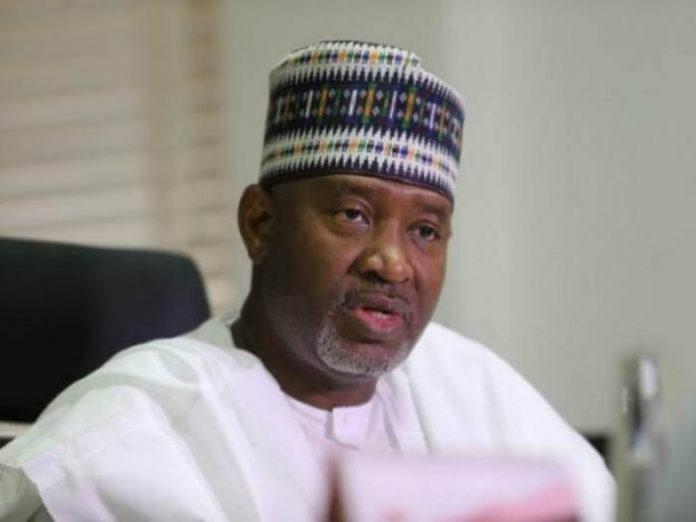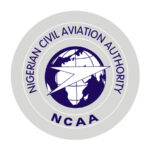The move by the Airline Operators of Nigeria (AON) to get the Nigerian Civil Aviation Authority (NCAA) extricated from the civil service structure is generating mixed feelings in the industry-leading to allegations of interference in the autonomy of the apex regulatory authority in the aviation sector.
AON made a case for the removal of NCAA from the civil service structure to enable the agency to attract the right personnel in order to safeguard the aviation industry in a letter it wrote to the senate dated January 19, 2022, and addressed to the Senate President, Ahmad Lawan. The letter was signed by AON President, Alhaji Abdulmunaf Yunusa Salina.
- Bagudu, Badaru meet Buhari over APC convention
- Nigeria’s future rests on science and technology – Buhari
AON, which represents indigenous airline operators, explained that the request was of immediate safety concern about the aviation industry.
AON stated that NCAA was established to regulate the aviation industry and implement government policies in the industry and also enforce the International Civil Aviation Organisation (ICAO) safety standards and recommended practices to ensure that the operators in the industry met the safety requirements.
NCAA, according to AON, will only be able to do this if it attracts the right personnel with sound technical know-how, and that to attract these special skills, it must be willing to offer these personnel attractive and competitive emoluments.
The operators further told the senate that because of this situation, many inspectors were leaving NCAA, noting that the few that remained were not well-motivated and their number hardly enough to meet the requirements of the industry.
AON added that the young personnel that were in the agency currently did not have the required experience, stressing that this portended immediate danger to flight safety and flight operations as the few hands remaining were either too old and tired or were too inexperienced to undertake proper and adequate oversight functions over airlines’ operations.
The operators noted that no country allowed its Civil Aviation Authority (CAA) salaries to be determined by civil service rules.
The AON letter to the senate president reads in part: “The safety challenges are real and should be addressed through legislation for the good of the industry and safety of the lives of the flying public. Sir, there is therefore a need to, as matter of urgency, find a way to immediately address the problem in order to forestall a potential beckoning disaster.
“AON would therefore, like to use this medium to respectfully call on the National Assembly to urgently review the establishment Act of the NCAA and to immediately remove the agency from the civil service salary structure in order for the agency to be able to attract the urgently needed experts for the sake of safety.”
But a former Deputy General Secretary of AON and Chairman of Hudson Bay Aviation, Alhaji Mohammed Tukur, disagreed with the AON leadership, saying its position was tantamount to “meddlesomeness in the internal matters of NCAA.”
However, our correspondent learnt that AON’s concern was precipitated by declining figures of skilled manpower in NCAA.
Daily Trust had earlier reported how the industry is generally battling with an ageing and retiring workforce. The case of NCAA is said to be worse, with less than 100 airworthiness inspectors serving over 10 scheduled airlines, 20 prospective carriers and over 20 non-scheduled airlines.
For NCAA, recruiting new inspectors, especially skilled ones with at least over 4,000 flight hours, remains herculean in the face of the stiff competition in the industry.
Daily Trust further reports that NCAA inspectors are basically experienced aircraft pilots and or engineers. In an industry where a pilot could earn up to N3m monthly working for an airline, it would be difficult for such a pilot, especially a middle-aged pilot, to work for the regulatory authority where he would earn less than N1m as per the civil service conditions of service.
Sources say the declining number of inspectors is a source of concern for the airline operators who are daily expanding, buying new aircraft and opening up more routes. With the growth being experienced in the airline sector, what it means is that NCAA would need more inspectors – safety inspectors, airworthiness inspectors, flight operations inspectors – to meet the rising request from operators.
It would be recalled that Green Africa Airline which started operations in 2021 had its plan a little bit altered when NCAA could not complete its certification as anticipated because the inspectors were “extremely busy”.
Several airlines also have one request for inspection or the other pending with the authority because of the reduced number of skilled workforce.
These, according to sources, are some of the concerns of AON which are desirous of getting their certifications and approvals done as fast as possible.
The NCAA DG, Capt Musa Nuhu, said the authority was not unmindful of the challenge posed by the civil service structure in retaining skilled manpower, adding that it was in talks with the Salaries and Wages Commission through the Ministry of Aviation to improve the emoluments of technical staff in the industry.
He said, “The NCAA is a government agency and not an independent body; we operate under public service rules and government salary structure. We have very experienced pilots with a minimum of 4,000 flying hours. That is the recommendation to be a flying instructor, but our pay is poor when compared to what the industry is paying.
“Our pay within the civil service structure seems to be great, but if you compare that to the closest we need from the industry, our pay is poor. So, people would rather go and work in the industry as a captain, earn some millions of naira, than to come here and earn less than N1m.
“It is normal for humans to do that. If I can work somewhere and get triple of my monthly salary for less work, why will I go and work somewhere else? The only people that come to work for the NCAA as flight operation inspectors are people who have retired from flying. People who have attained the age of 65 or more, and we employ them on special contracts, and even as a special contract staff, when you get to 70 years of age, you are supposed to leave.”

 Join Daily Trust WhatsApp Community For Quick Access To News and Happenings Around You.
Join Daily Trust WhatsApp Community For Quick Access To News and Happenings Around You.

